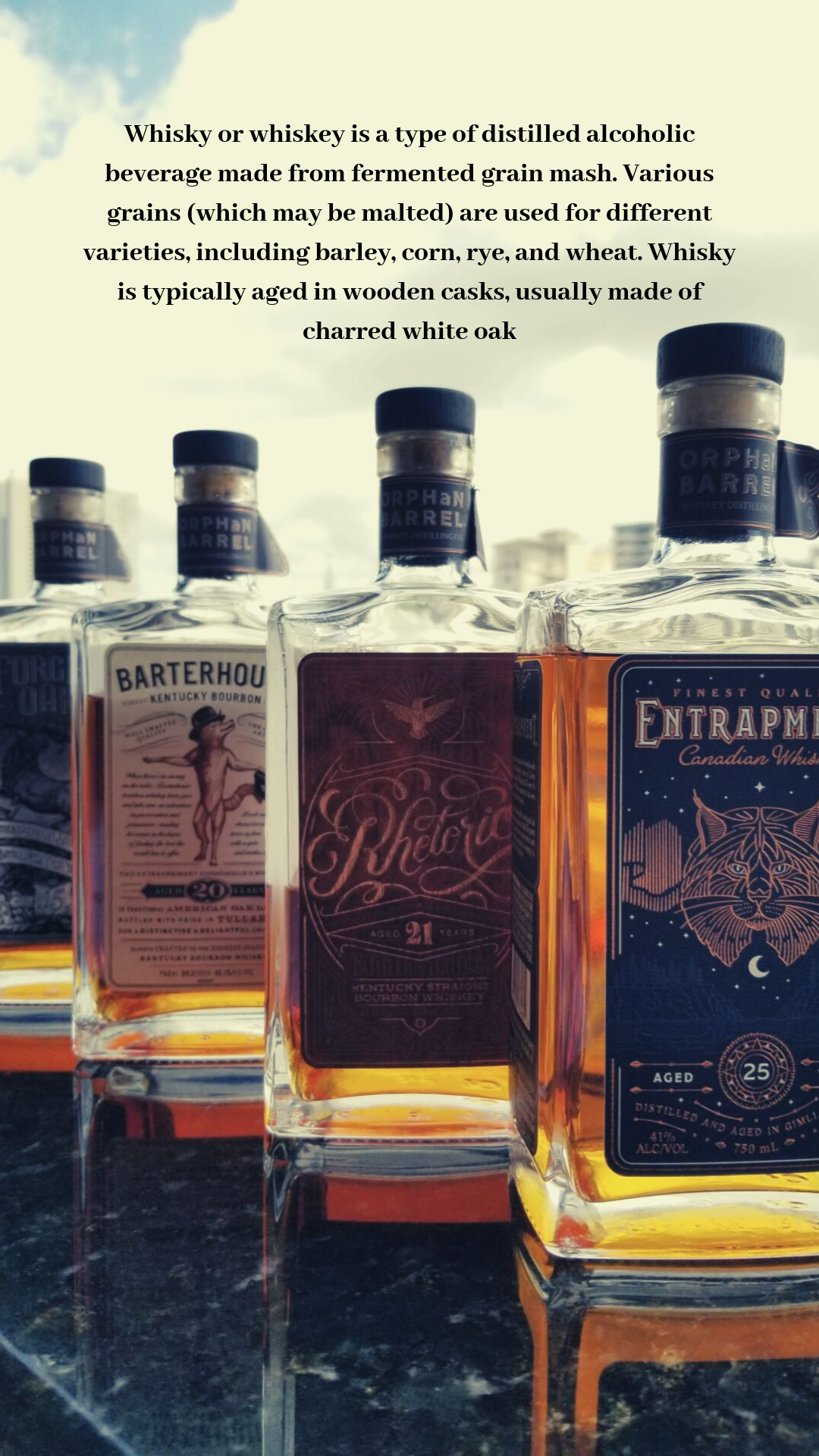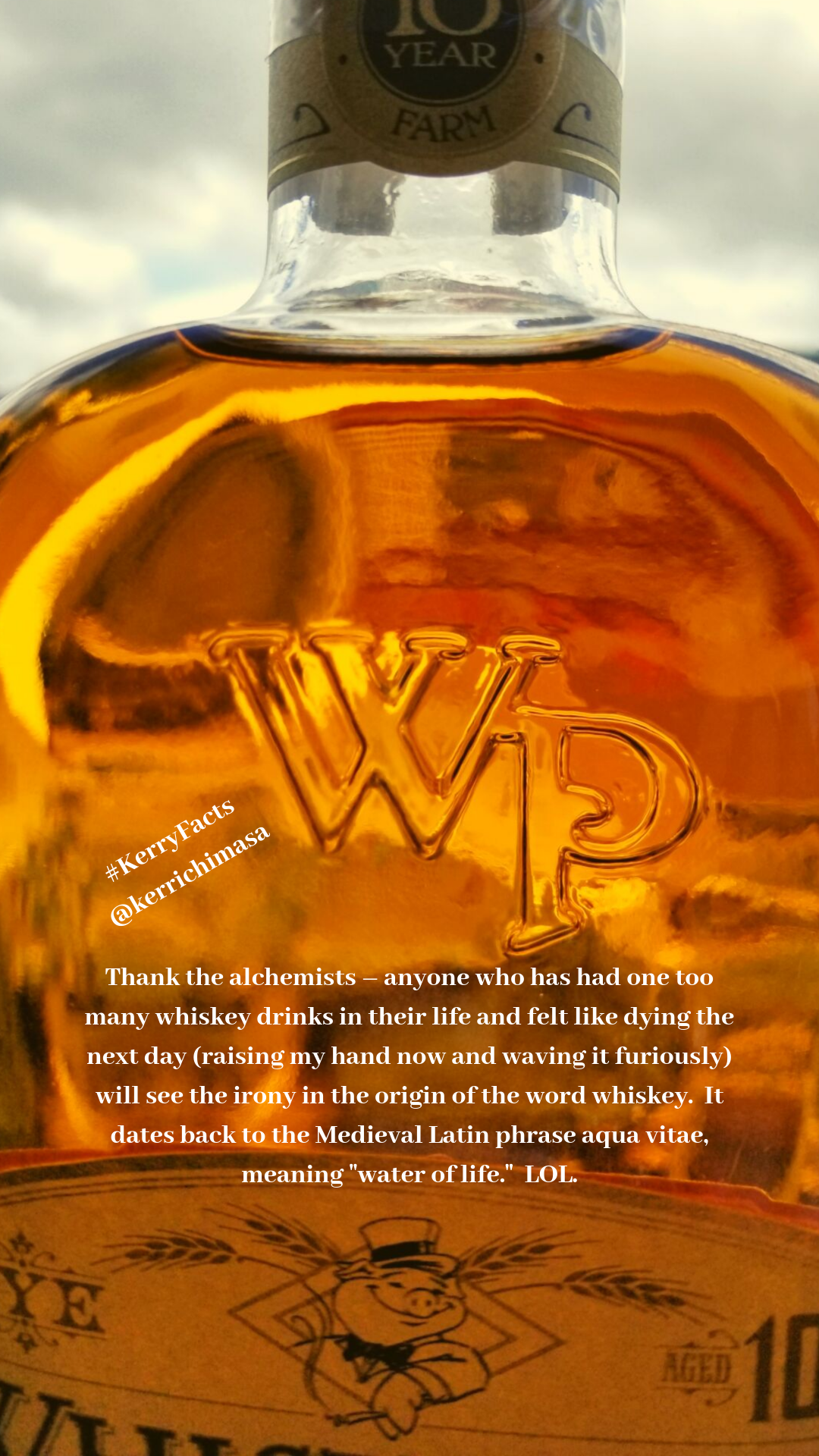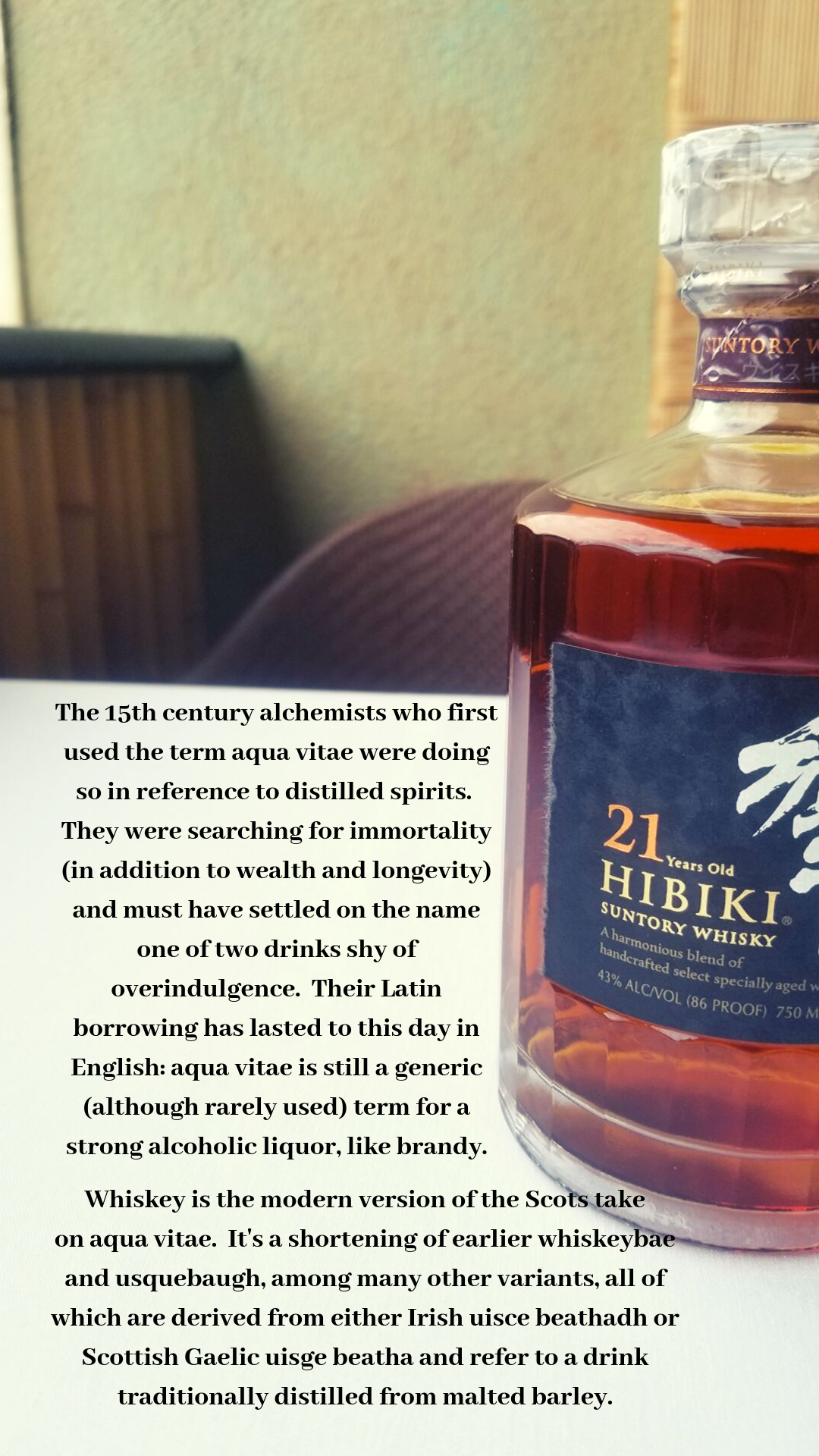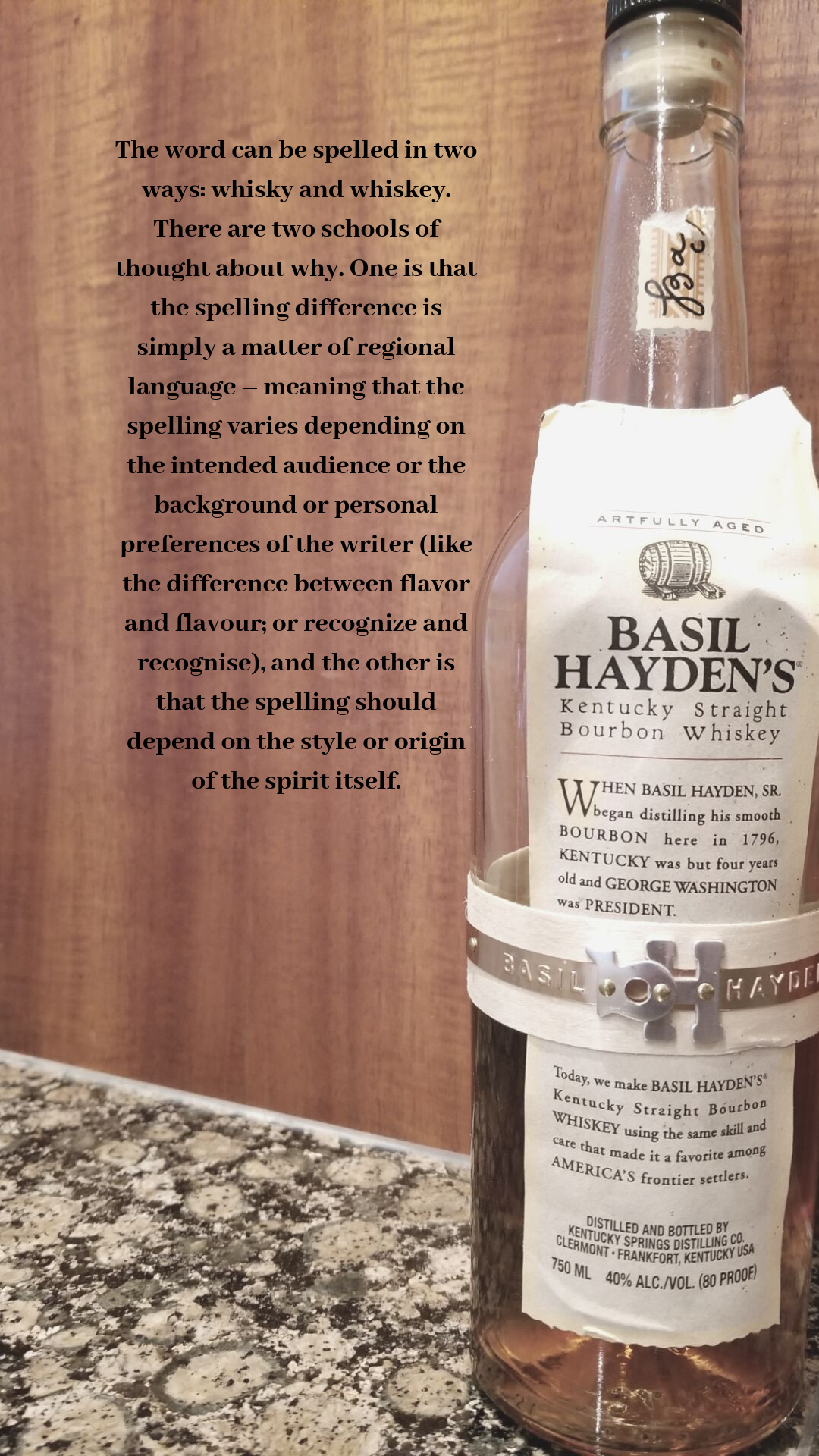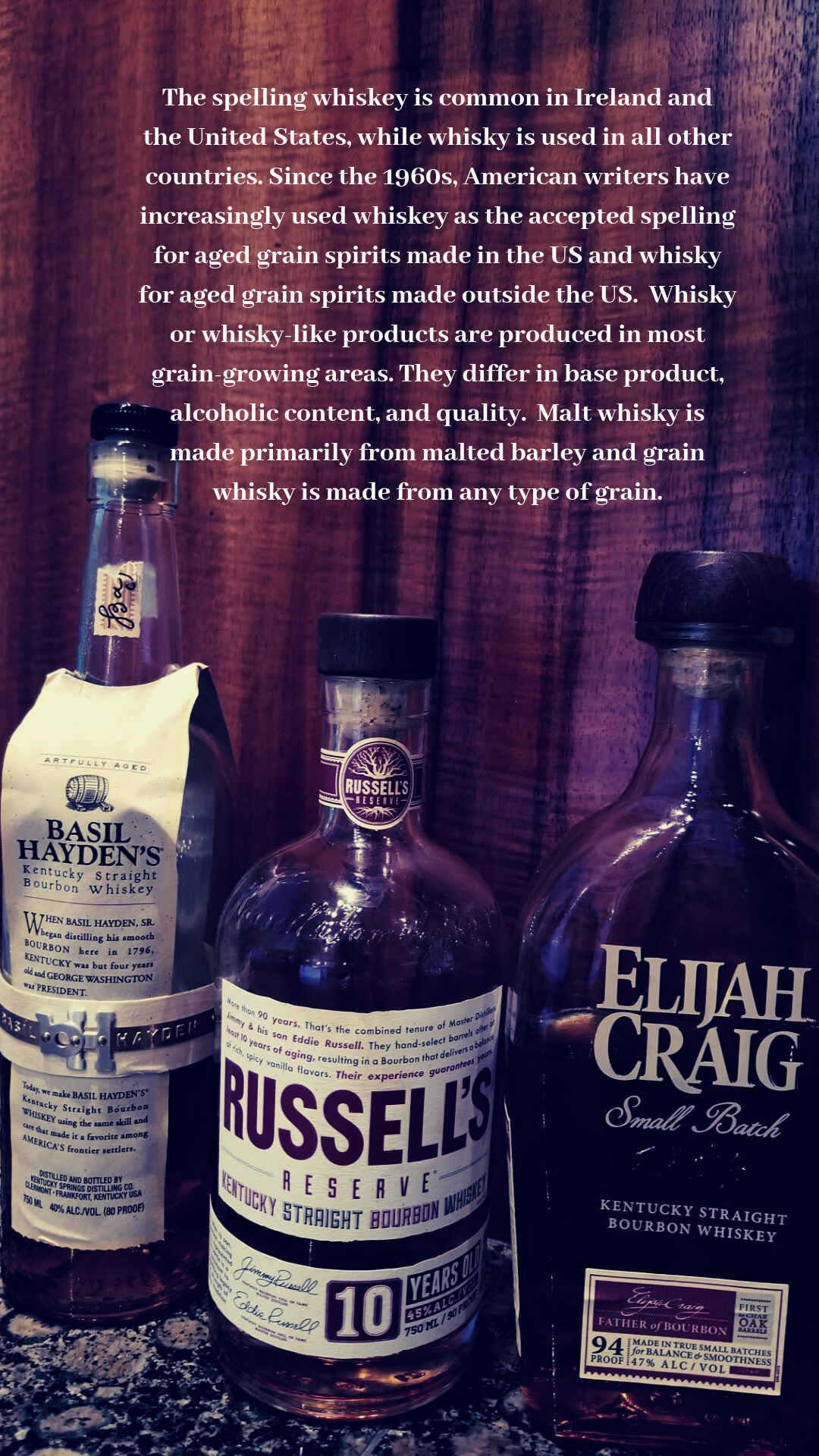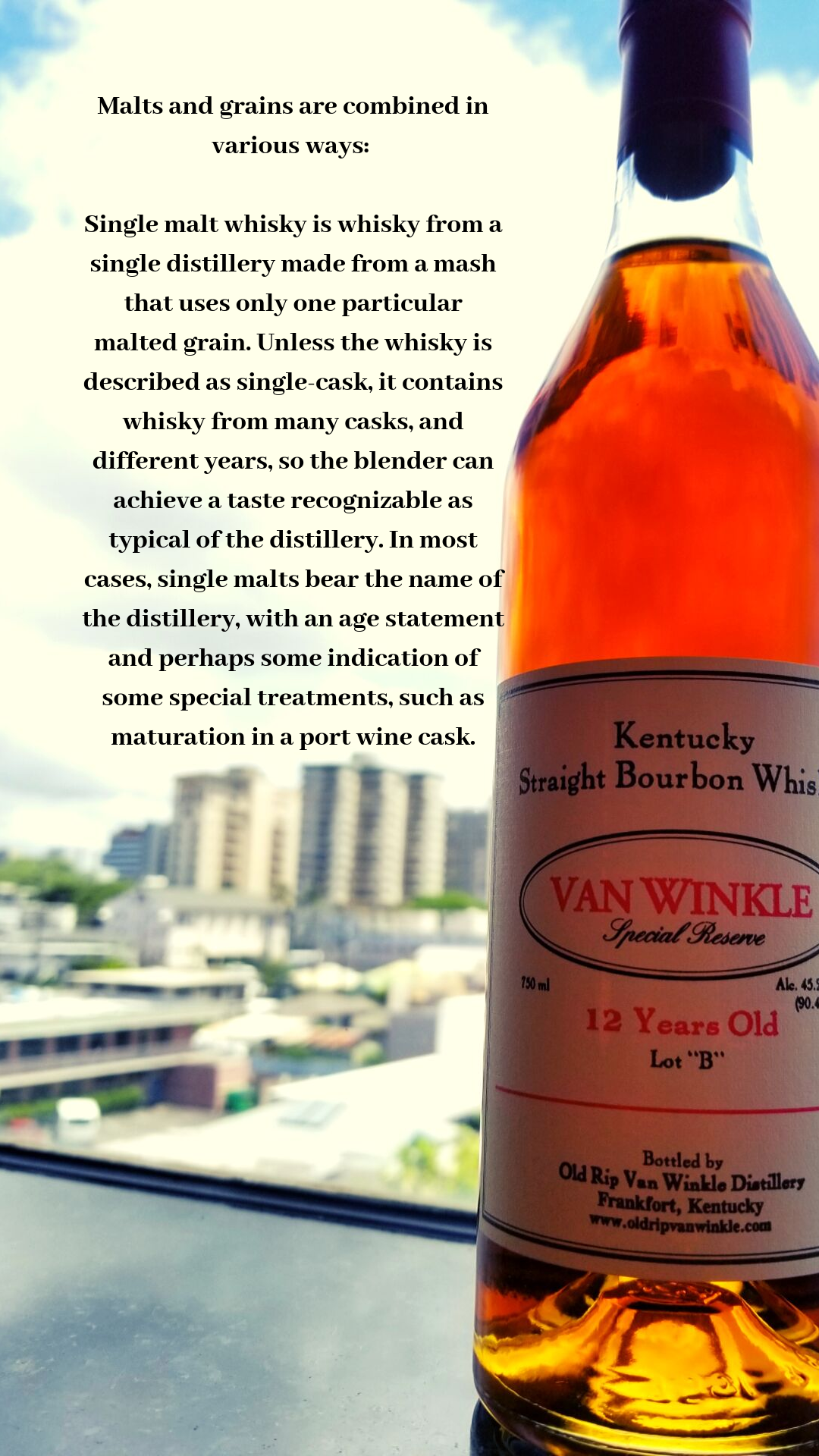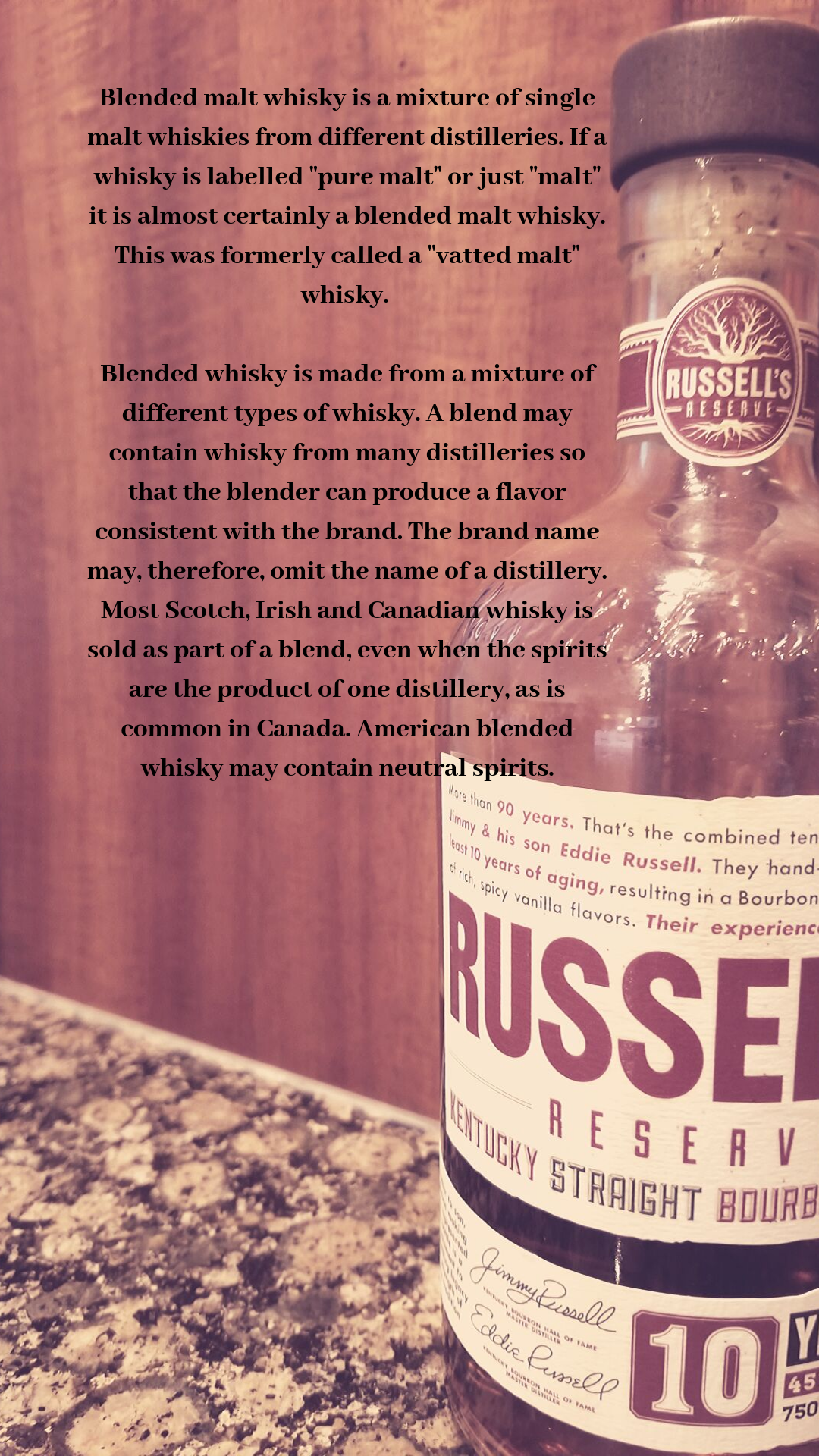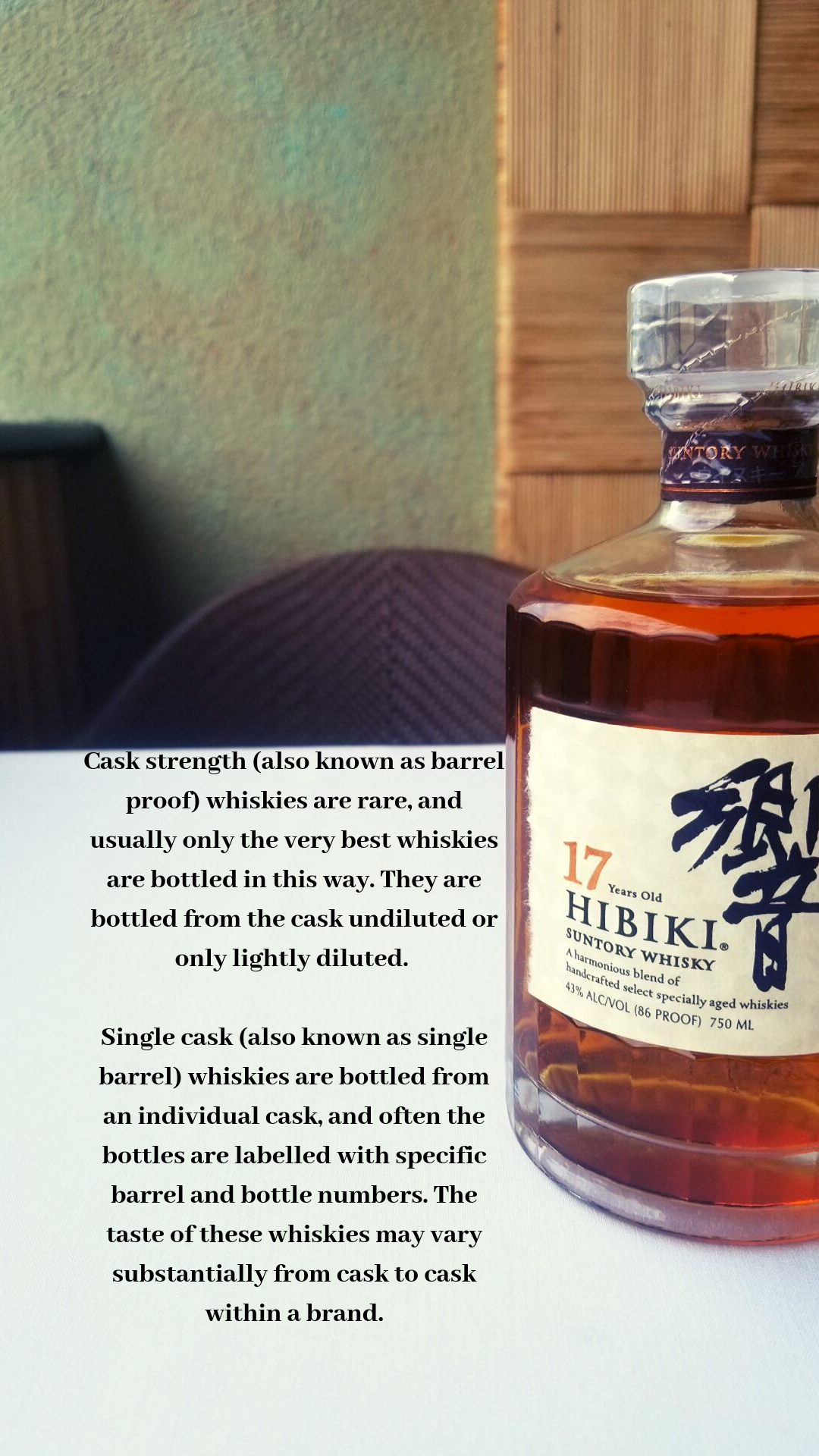Whisky or Whiskey???
Whisky or whiskey is a type of distilled alcoholic beverage made from fermented grain mash. Various grains (which may be malted) are used for different varieties, including barley, corn, rye, and wheat. Whisky is typically aged in wooden casks, usually made of charred white oak.
Thank the alchemists – anyone who has had one too many whiskey drinks in their life and felt like dying the next day (raising my hand now and waving it furiously) will see the irony in the origin of the word whiskey. It dates back to the Medieval Latin phrase aqua vitae, meaning "water of life." LOL.
The 15th century alchemists who first used the term aqua vitae were doing so in reference to distilled spirits. They were searching for immortality (in addition to wealth and longevity) and must have settled on the name one of two drinks shy of overindulgence. Their Latin borrowing has lasted to this day in English: aqua vitae is still a generic (although rarely used) term for a strong alcoholic liquor, like brandy.
Whiskey is the modern version of the Scots take on aqua vitae. It's a shortening of earlier whiskeybae and usquebaugh, among many other variants, all of which are derived from either Irish uisce beathadh or Scottish Gaelic uisge beatha and refer to a drink traditionally distilled from malted barley.
The word can be spelled in two ways: whisky and whiskey. There are two schools of thought about why. One is that the spelling difference is simply a matter of regional language – meaning that the spelling varies depending on the intended audience or the background or personal preferences of the writer (like the difference between flavor and flavour; or recognize and recognise), and the other is that the spelling should depend on the style or origin of the spirit itself.
The spelling whiskey is common in Ireland and the United States, while whisky is used in all other countries. Since the 1960s, American writers have increasingly used whiskey as the accepted spelling for aged grain spirits made in the US and whisky for aged grain spirits made outside the US.
Whisky or whisky-like products are produced in most grain-growing areas. They differ in base product, alcoholic content, and quality.
Malt whisky is made primarily from malted barley and grain whisky is made from any type of grain.
Malts and grains are combined in various ways:
Single malt whisky is whisky from a single distillery made from a mash that uses only one particular malted grain. Unless the whisky is described as single-cask, it contains whisky from many casks, and different years, so the blender can achieve a taste recognizable as typical of the distillery. In most cases, single malts bear the name of the distillery, with an age statement and perhaps some indication of some special treatments, such as maturation in a port wine cask.
Blended malt whisky is a mixture of single malt whiskies from different distilleries. If a whisky is labelled "pure malt" or just "malt" it is almost certainly a blended malt whisky. This was formerly called a "vatted malt" whisky.
Blended whisky is made from a mixture of different types of whisky. A blend may contain whisky from many distilleries so that the blender can produce a flavor consistent with the brand. The brand name may, therefore, omit the name of a distillery. Most Scotch, Irish and Canadian whisky is sold as part of a blend, even when the spirits are the product of one distillery, as is common in Canada. American blended whisky may contain neutral spirits.
Cask strength (also known as barrel proof) whiskies are rare, and usually only the very best whiskies are bottled in this way. They are bottled from the cask undiluted or only lightly diluted.
Single cask (also known as single barrel) whiskies are bottled from an individual cask, and often the bottles are labelled with specific barrel and bottle numbers. The taste of these whiskies may vary substantially from cask to cask within a brand.
-- Kerry Ichimasa, Assistant Wine Director (@kerrichimasa)
#KerryFacts

